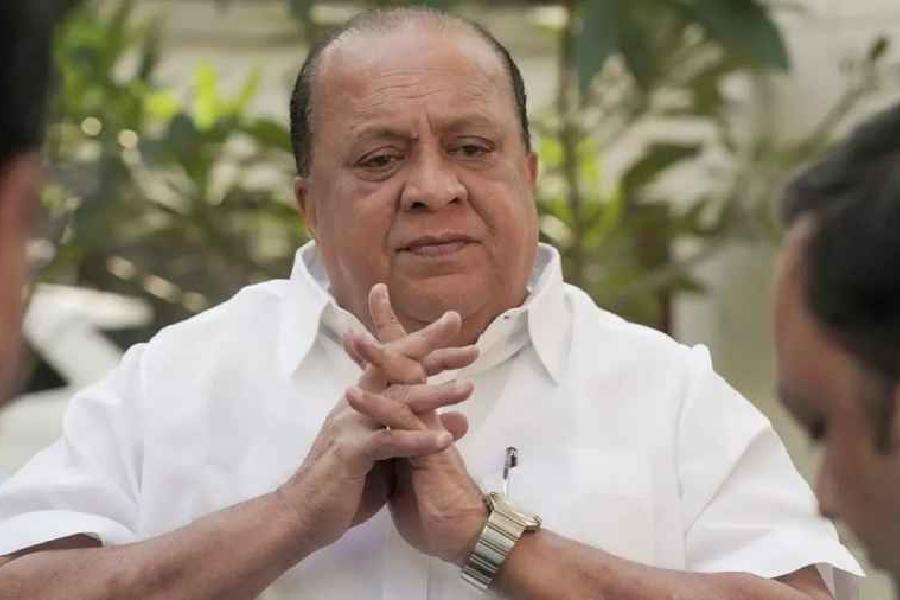In the wake of deaths of several patients at government-run hospitals at Nanded and Chhatrapati Sambhajinagar in a short span, Maharashtra minister Hasan Mushrif on Thursday said positive changes will be brought in the functioning of the state-run medical facilities in four months.
He also said the state government will submit an affidavit in Bombay High Court on Friday detailing the shortcomings and difficulties faced by government-run hospitals as well as stringent action taken to rectify these issues.
Thirty-one patients, including several infants, died at the Dr Shankarrao Chavan Government Medical College and Hospital in Nanded in 48 hours since September 30, while the death of 18 patients was recorded at the Government Medical College and Hospital at Chhatrapati Sambhajinagar between October 2 and 3, officials said.
Speaking to reporters here, Mushrif said, "The Maharashtra government has already taken a decision to perform all types of complicated surgeries in the state-run hospitals using the public-private partnership (PPP) model. We will try to implement it effectively at the earliest." "I have taken charge (of the state medical education ministry) just two months back. I can assure that you will see good changes in four months in all the medical colleges attached to government hospitals - be it Mumbai, Pune, Aurangabad (Chhatrapati Sambhajinagar) or Nagpur. I will definitely start health services, such as kidney transplant and liver transplant, at these hospitals," he said.
The Bombay High Court on Wednesday took suo motu cognisance of the deaths at the state-run hospitals in Nanded and Chhatrapati Sambhajinagar cities, and noted that the reasons given by doctors citing the shortage of beds, staff, and essential medicines cannot be accepted.
A day earlier, Chief Minister Eknath Shinde said his government had taken the deaths at the Nanded hospital very seriously, and appropriate action would be taken after a detailed inquiry. He denied that there were shortages of medicines and staff.
Speaking to reporters, Mushrif said, "The Maharashtra government will submit an affidavit in the Bombay High Court tomorrow mentioning the shortcomings and difficulties faced by government-run hospitals. The affidavit will also state the stringent action taken by the Maharashtra government, as well as the way the patients were shifted from private hospitals to Nanded's government hospital." Responding to a query on the deaths of infants at the Nanded hospital, the minister said 10 of the 12 infants were brought to the facility in a very critical state, adding that it received many critical patients during the time as several doctors from private hospitals were on leave.
Admitting that lack of cleanliness was a matter of concern at the hospital in Nanded, he said he had seen the "bad condition" and had apologised.
Cleanliness of the 100-acre area of the hospital was not being maintained due to some "internal fights" and the need was to go in for outsourcing, Mushrif said.
"We need to increase the capacity of the hospital. The official capacity is 500 patients, but there are nearly 1000 people taking treatment. The crowding caused by relatives increases the pressure," he said.
The capacity of the hospital's Neonatal Intensive Care Unit (NICU) is 10 patients (infants), but if more babies are placed in one incubator box, there is chance of spread of infection, he said.
"I was also told by local officials that more than 100 kids are brought there for treatment. We need to increase the capacity of such facilities," he said.
He said the Maharashtra Medical Goods Procurement Authority Act 2023 was still ineffective and the Haffkine Institute could not complete the medicine procurement and supply process.
"We will take all steps to make the Authority fully functional as soon as possible. The dean of the medical college has the right to procure up to 30 per cent of medicines on need basis. The state government will soon increase this to 40 per cent," Mushrif said.
Except for the headline, this story has not been edited by The Telegraph Online staff and has been published from a syndicated feed.











